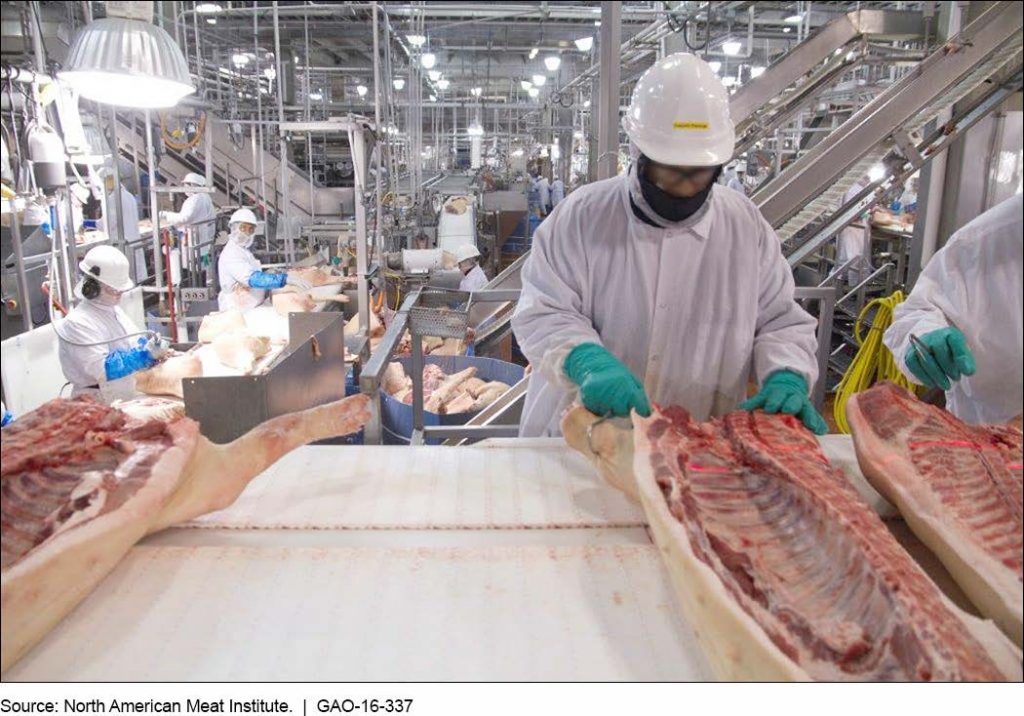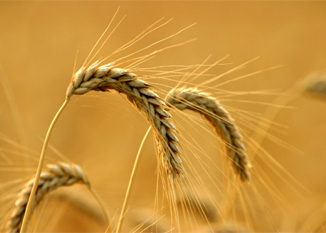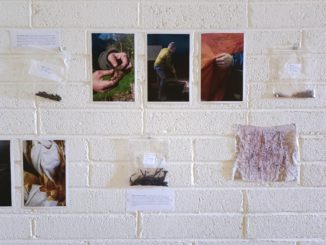
While the exploitation of agri-food sector workers is a longstanding food system issue, the emergence of slaughterhouses across Europe and the US as coronavirus hotspots has brought renewed urgency and heightened awareness to issues relating to the conditions to which meat-plant workers are exposed. Alison Brogan rounds up the Covid19 news on this topic from the US, Ireland and Germany.
Alison Brogan
With a number of countries experiencing Covid-19 outbreaks in meat plants, employment conditions in the sector are coming under scrutiny.
In the New York Review of Books Michael Pollan writes that considering social distancing is near impossible in meat plants, it is hardly surprising that thousands of US based slaughterhouse workers are out sick and dozens have died.
He calls attention to the cruel paradox of workers being classified as “essential” while often being grossly underpaid and undervalued, and wonders whether now, with increased leverage, food and agricultural workers will be able to win wage rises, protections and benefits more in line with their importance to society.
Almost half of current US Covid-19 hotspots are linked to meat plants, the Guardian reported on Friday, May 15th.
Ireland
The perilous conditions meat-plant workers are being faced with are not unique to America. Back in Europe, in a Guardian article on the experiences of workers in Irish and Northern Irish meat-plants Ella McSweeney points out that Covid-19 outbreaks are affecting industrialised meat and food processing plants across the world. Sources quoted in the piece who work in various Irish meat plants reported that efforts to protect them at the outset of the pandemic were insufficient and now, despite some measures being in place, they still do not feel safe in the workplace.
One worker who tested positive for the virus told the Guardian “One hundred per cent, I know I got it in the factory… If the disease was in the animals, they’d have closed the place. But for workers, the factories can do what they want”
In the Republic of Ireland, some 600 meat plant workers have tested positive for Covid-19, and in Northern Ireland, one worker has died from the virus.
Up to 140 out of 350 staff at one Irish meat plant owned by Rosderra Meats have tested positive for Covid-19, according to an Irish MP quoted in the Irish Times. The MP is reported to have said: “Workers had to battle with management to get measures of any kind put in place, but they are still being denied two-metre distancing on the factory floor. There is congregating and no separation in the locker rooms or washrooms”. Many workers at the plant are from Moldova and live together in shared accomodation, according to the report.
Germany
In Germany, outbreaks in several slaughterhouses have renewed political debate over working conditions in meat-plants as well as the living conditions provided for seasonal workers, many of whom come from Eastern Europe.
The German “Corona Cabinet” is due to discuss stricter meat industry measures on Wednesday, after a meeting originally scheduled to take place earlier in the week was pushed back.
With Germany’s Labour Minister Hubertus Heil of the SDP announcing his intention to clean up the meat industry, one of the policy measures that is on the cards is an end to the hiring of mostly migrant workers via subcontractors. This practice enables companies to shirk responsibilities towards workers, and according to Miodrag Soric of the German broadcaster DW, it is a loophole the meat industry relies on to cut costs.
With meat plants in North Rhine-Westphalia, Bavaria and Schleswig-Holstein already having recorded Covid-19 outbreaks, on Sunday the District of Osnabrück announced that 92 cases had been confirmed at a meat facility in Dissen, Lower Saxony. Production at the factory has ceased for the moment. Many of the infected personnel are employed under sub-contracts, with some living together in shared accommodation, according to the Süddeutsche Zeitung
The Süddeutsche Zeitung also reported that a lack of compliance with Covid-19 hygiene regulations and the cramped nature of accommodation provided for migrant workers are contributing to the infections in meat plants.
A figure from the German meat industry quoted in the Süddeutsche Zeitung argued that the push for a ban on subcontracting only in the meat industry stigmatised the sector.
In a policy proposal outlining a seven point plan to address the ongoing situation, the Greens contextualise the Covid-19 outbreaks and working conditions prevalent in Germany as a systematic problem associated with industrial agriculture. One of the party’s proposals in addition to ending the industry practice of hiring workers via subcontractors is a call for the end of cheap meat through the introduction of minimum pricing, a policy measure which according to the Süddeutsche Zeitung is opposed by Germany’s agriculture minister, Julia Klöckner.
Whether the Corona Cabinet will endorse a tightening up of meat industry measures and exactly what shape any such regulation would take is not yet certain, though according to Tagesschau, a government spokesperson has said there is strong consensus that change in slaughterhouse conditions is necessary. More should be revealed in the coming days.
More
Farm Resilience in the Face of the Unexpected: Lessons from the COVID-19 Pandemic
Coping with Covid – Struggles and Resilience of Small-Scale Cheesemakers in Italy
IPES-Food on Covid-19: Protect the Vulnerable, Build Resilience, Stay Vigilant
Coping with Covid19 – Disruption, Protectionism and a People’s Agroecology
Effects of Coronavirus on Agricultural Production – a First Approximation
Effects of Coronavirus on Agricultural Production – a First Approximation (part 2)
Coping with Covid19 – Mutual Aid and Local Responses in a time of Coronavirus





